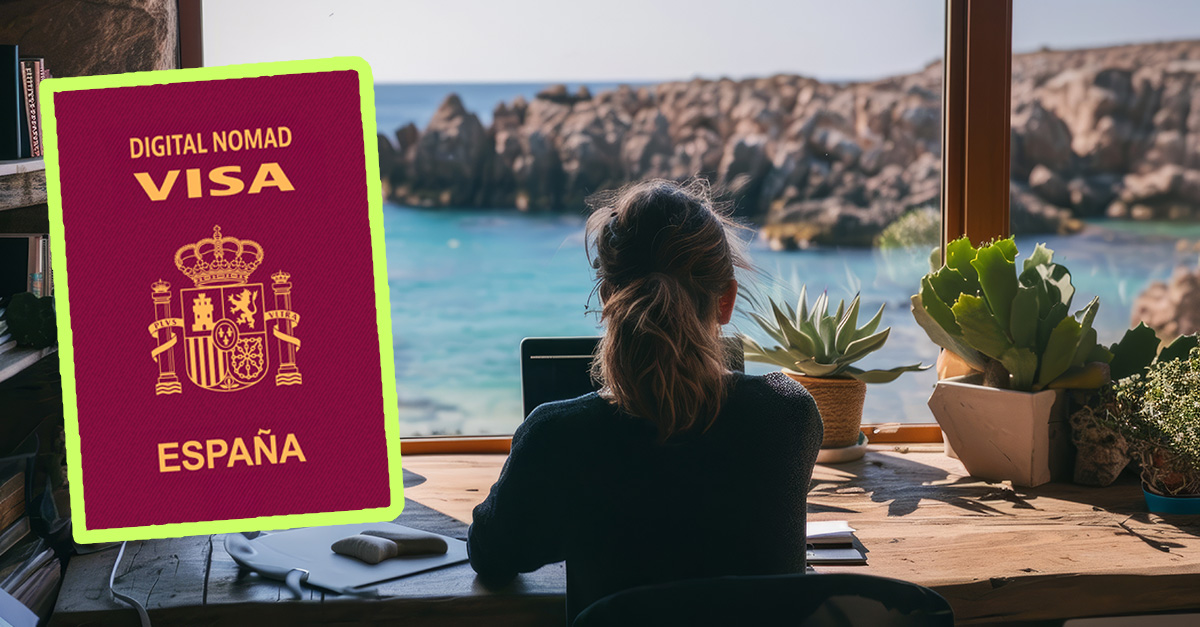
Spain’s Digital Nomad Visa: A Gateway to Work and Lifestyle in the Mediterranean
Spain has become a top destination for digital nomads seeking to combine their professional lives with the vibrant culture and lifestyle of the Mediterranean. The country offers an appealing blend of sunny weather, rich history, and modern infrastructure, making it an attractive choice for remote workers. With the introduction of the Digital Nomad Visa (DNV), Spain has further solidified its position as a prime location for international professionals.
The DNV is part of Spain’s Startup Act, a legislative initiative aimed at attracting global talent and boosting the economy. This visa allows non-EU/EEA citizens to legally reside and work remotely in Spain for up to five years. It provides flexibility, tax benefits, and the opportunity to explore the Schengen Area without restrictions.
Key Features of the Digital Nomad Visa
- Visa Duration: 1 year (consulate) or 3 years (in-Spain application)
- Renewability: Up to 5 years total
- Minimum Income Requirement: €2,760 per month for single applicants
- Processing Time: 15–45 days
- Application Fee: €80–90
- Eligibility: Non-EU/EEA remote workers, freelancers, and entrepreneurs
- Income Limit: No more than 20% of income can come from Spanish sources
Who Can Apply?
The DNV is exclusively available to non-EU/EEA citizens who work remotely. This includes:
- Remote employees employed by companies outside Spain
- Freelancers and contractors with international clients
- Entrepreneurs operating primarily outside Spain
Applicants must adhere to the 20% rule, which ensures that no more than one-fifth of their income comes from Spanish sources. This rule helps maintain the integrity of the program, ensuring that DNV holders are truly international workers rather than those looking to settle permanently in Spain.
Family members, including spouses, children, and other dependents, can also accompany the main applicant. This makes the DNV an attractive option for families seeking a new home abroad.
Requirements for the Digital Nomad Visa in 2025
To qualify for the DNV, applicants must meet several key requirements:
Financial Requirements
- Single applicant: €2,760 per month
- Couple: €3,797 per month
- Each additional adult: +€1,035 per month
- Each child: +€346 per month
Professional Qualifications
Applicants must demonstrate their expertise through evidence of a university degree or professional certification, along with a minimum of three years of relevant work experience.
Additional Requirements
- Applicants must be at least 18 years old
- Must reside in Spain for 183+ days per year to keep the visa active
- Clean criminal record for the past five years
- Spanish health insurance
- Proof of current employment or client contracts (minimum of three months’ proof)
- Evidence that the employer or clients have been operating for at least one year
- Valid passport with at least one year of remaining validity
- Proof of accommodation
- Apply for a Spanish tax ID (NIE/NIF) upon arrival
Costs Involved
The costs associated with applying for the DNV vary depending on nationality and circumstances. Some of the average expenses include:
- Visa application fee: €80–90
- Residence card (TIE): €16–20
- Criminal background check: €15–60
- Apostille services: €25–75
- Official translations: €20–70 per document
- Health insurance: €50–200 per month
How to Apply
There are two primary ways to apply for the DNV:
-
Apply Through the Spanish Consulate: This route grants an initial 1-year visa. Applicants must gather required documents, submit an application, and attend a visa interview. Approval typically takes 15–45 days.
-
Apply Within Spain (Tourist Status): This option allows for an initial 3-year residence permit. Applicants must enter Spain legally as tourists and apply before their 90-day tourist visa expires. Processing is often faster since the applicant is already in the country.
Tax Benefits
One of the most appealing aspects of the DNV is the potential for tax advantages. Under the Beckham Law, qualifying digital nomads may benefit from a flat 24% tax rate on income up to €600,000 annually. This rate is significantly lower than standard Spanish tax rates. Additionally, Spain has double taxation treaties with over 90 countries, ensuring that individuals are not taxed twice on the same income.
Conclusion
Spain’s Digital Nomad Visa presents a unique opportunity for remote workers to live and work in one of the most desirable locations in the world. With flexible residency options, financial requirements tailored to different family sizes, and favorable tax policies, the DNV is an excellent choice for those looking to embrace a digital nomadic lifestyle. By understanding the requirements and planning ahead, aspiring digital nomads can take full advantage of this opportunity and enjoy the best of Spain’s culture, climate, and community.
